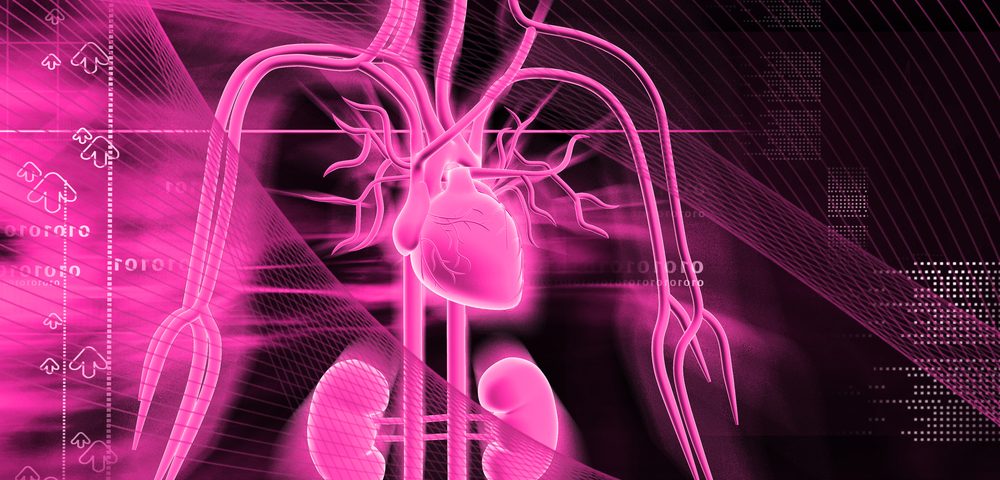Kidney disease patients who undergo a transplant show a degree of improved cardiac health afterward, researchers reported, highlighting the known, dynamic interaction between the kidneys and the heart.
For the study, “Improved Left Ventricular Structure and Function After Successful Kidney Transplantation,” published in the journal Kidney and Blood Pressure Research, a research team from Germany evaluated 31 patients with chronic kidney disease (CKD) who had received a kidney transplant.
The team performed medical examinations, laboratory tests and echocardiography before and after surgery. They also used a novel echocardiographic method called speckle tracking echocardiography (STE), a very sensitive way of detecting subtle changes in heart parameters.
Results showed that after a kidney transplant, systolic blood pressure, or the pressure in the arteries when the heart beats, decreased significantly in patients.
A significant reduction was also seen in the thickness of the wall of the left ventricle, which pumps oxygen-rich blood from the heart to the body. A thicker left ventricular wall makes the heart work harder to pump blood, and an enlarged heart muscle loses its elasticity and may fail to pump with the necessary force.
Reduced wall thickness was accompanied by an improvement in left ventricular function, as well as improvement in a parameter called global longitudinal peak systolic strain (GLPS), a reliable predictor of mortality in patients with severe CKD.
But no relevant changes were found in parameters of left atrium function, which acts as a holding chamber for blood returning from the lungs; left ventricle diastolic function, which is when the heart relaxes to receive the blood coming from the body; or in right ventricular function, which is the pumping of oxygen-depleted blood to the lungs.
Researchers concluded that left ventricular hypertrophy (or enlargement) can be successfully be treated by a kidney transplant, improving certain aspects of heart function in CKD patients. They also note that the application of advanced echocardiographic methods, such as STE, can be very useful in evaluating heart function.
“Restoration of renal function after kidney transplantation (KTX) disrupts the negative cardiorenal interplay and may reverse some of the cardiac changes seen with CKD,” the concluded. “KTX was shown to reduce cardiac mortality and the risk for development of chronic heart failure (CHF) compared with long-term dialysis.”
But kidney and heart function are closely related, CKD represents a major risk factor for cardiovascular disease. Inversely, acute or chronic heart disease can also cause acute or chronic kidney problems.

